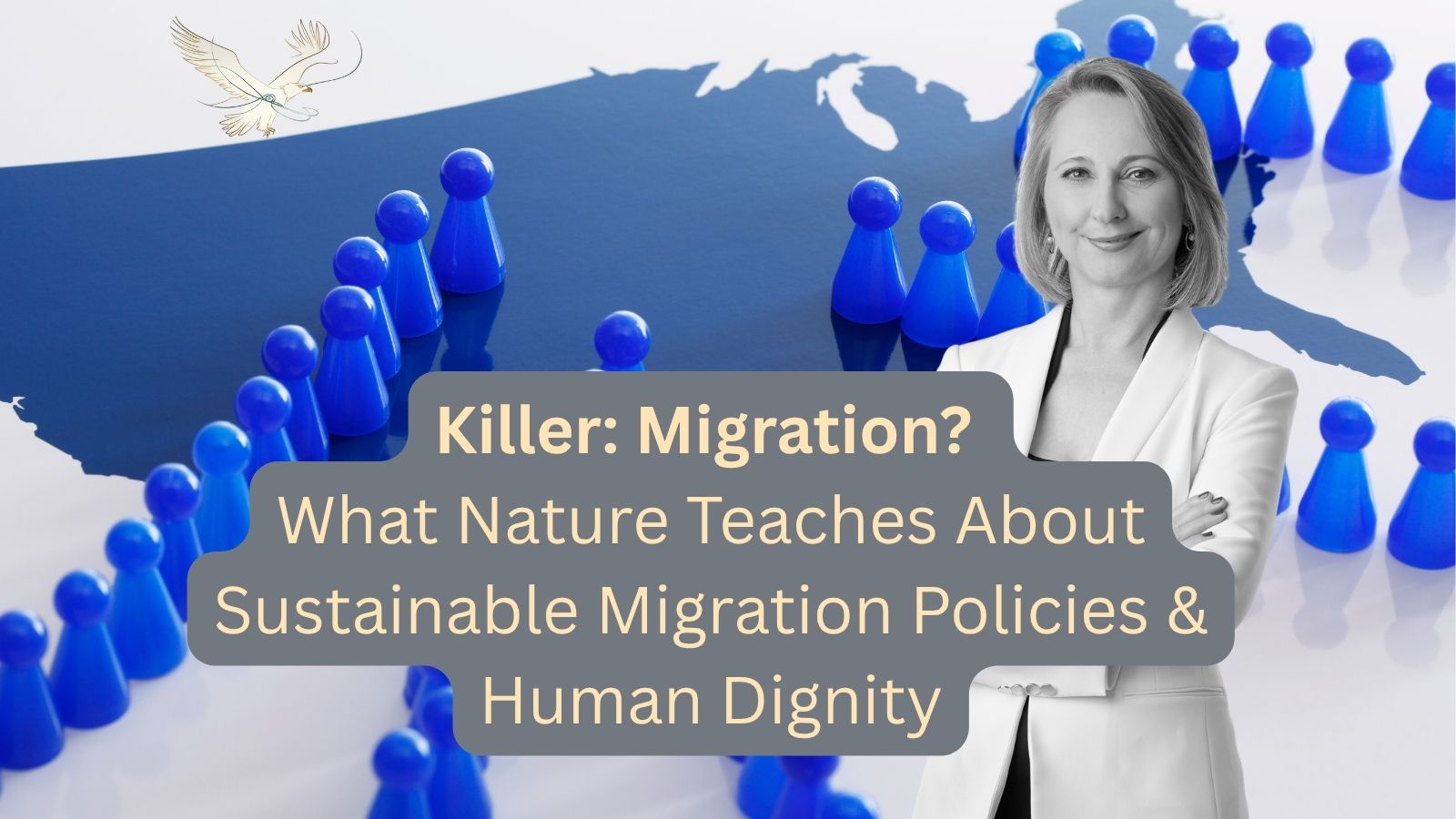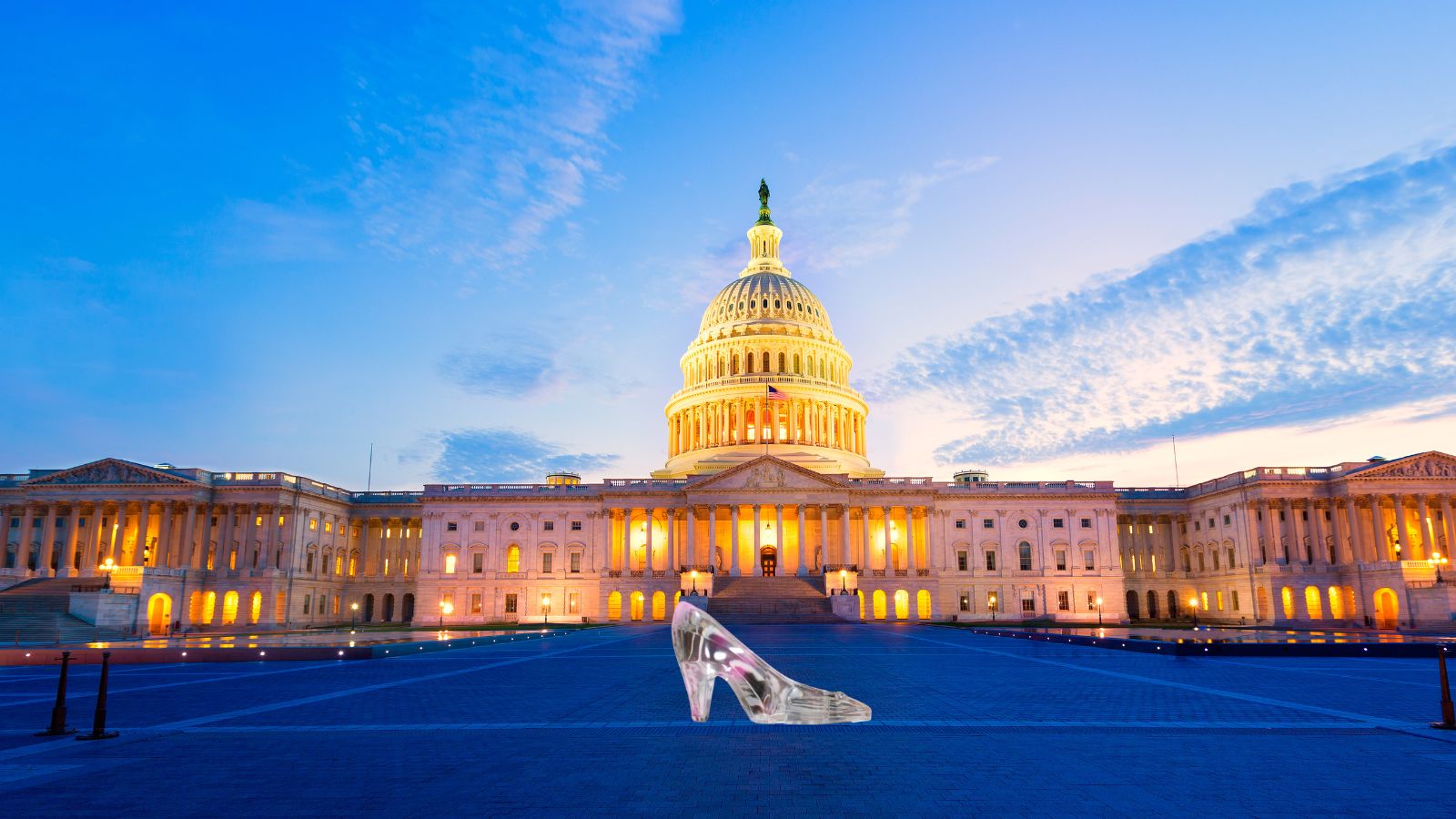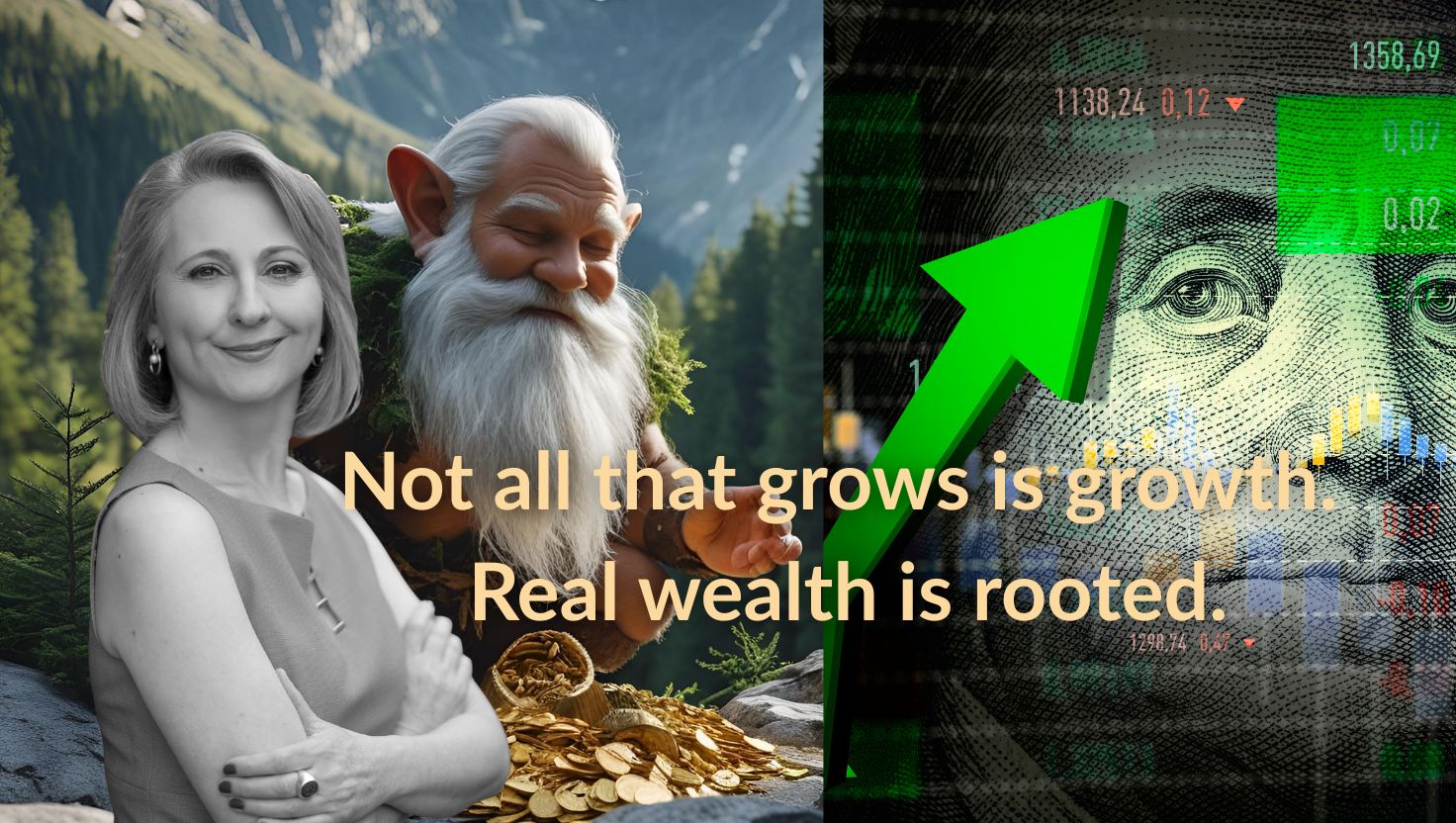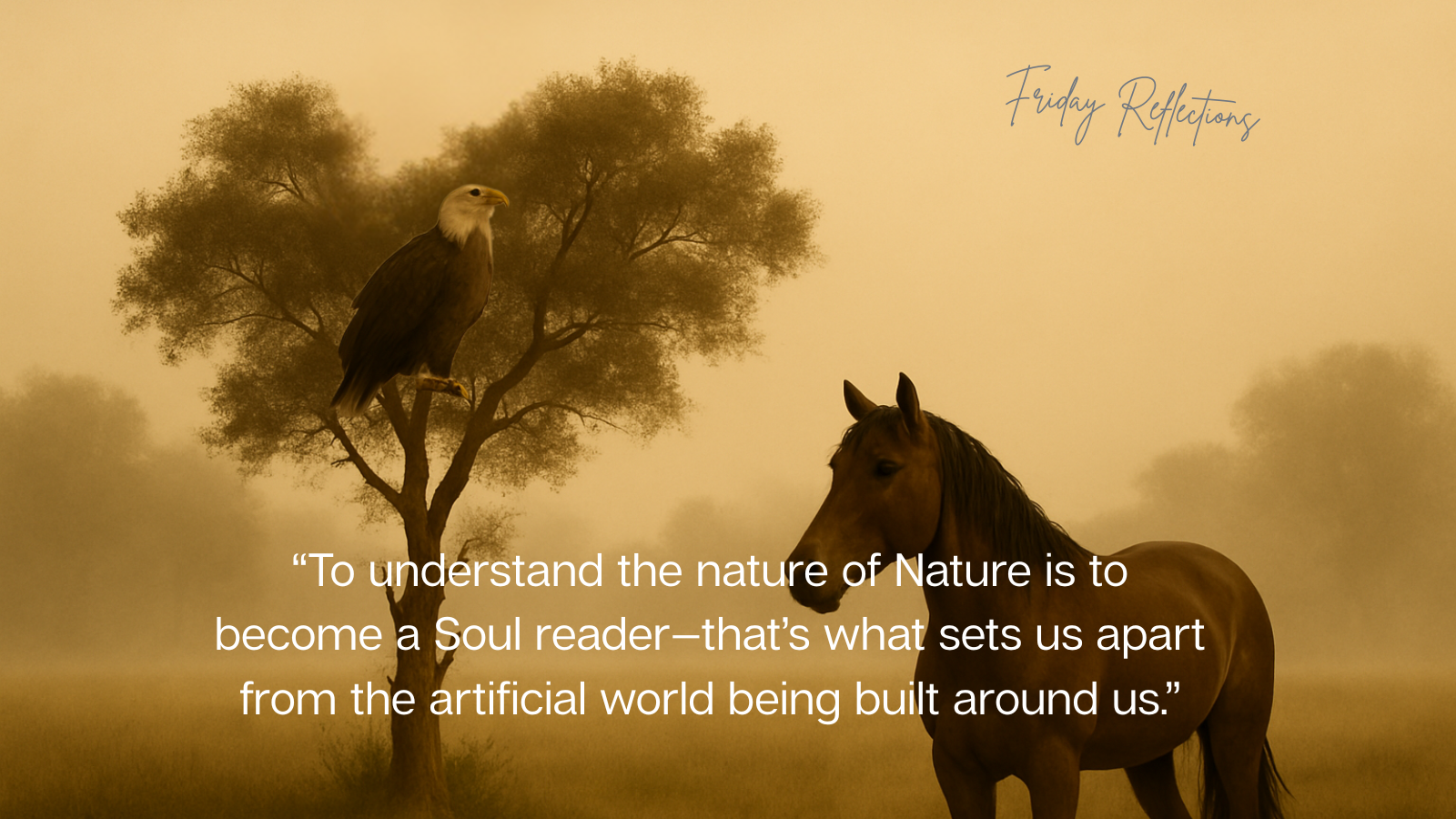
Heading
How does Nature manage invasive species?
A fair question—and one of profound importance for Western policymakers on both sides of the spectrum. Those willing to look honestly and confront systemic limitations. What we need is a balanced integration between compassion and foresight, of wishful thinking and lived reality. Migration remains the top concern across the West. Many nations have already crossed their ecological balance tipping point, pulling last‑minute emergency brakes long after midnight while grappling with the consequences of short‑term thinking and fragmented political goals.
The deeper question is this: why did political leadership ignore how Nature handles migration and invasive species after years of preaching “sustainability” to protect Earth?
Perhaps the answer lies in a forgotten truth: Earth was made to protect and teach us. She mirrors the Intelligence of Creation itself—offering lessons in balance, adaptation, and restraint.
"Earth was made to protect and teach us. She mirrors the Intelligence of Creation itself—offering lessons in balance, adaptation, and restraint"
Ecosystems react to invasive species in complex ways that often disrupt native biodiversity and ecosystem functions. Nature manages invaders primarily through natural ecological processes such as competition, predation, adaptation, and, in time, a new equilibrium.
Key Insight #1: Invasive species that cannot compete or integrate into the local ecosystem gradually disappear, while others outcompete native species until a new balance emerges.
Over long timescales, native species evolve adaptations to restore ecological balance.
Key Insight #2: Nature self‑regulates. All living organisms self‑regulate. This is “the invisible hand”-an innate mechanism inherent in all living systems to self‑regulate, self‑heal, and self‑restore. It works perfectly when not disturbed by artificial interference.
This self‑regulation occurs naturally through constant feedback among species and their environments. Yet human intervention—introducing invasive species, dissolving boundaries, managing nature through ideology—breaks that balance. The same applies to human migration.
Now, to be clear: as long as there are wars and changing environments that make life impossible in certain regions, humans will migrate. The planet was made for all; its resources are meant to be shared. Most people understand that.
But the havoc caused by unrestrained migration policies—disconnected from nature and natural equilibrium—is another story.
And let it be said plainly: while human dignity should be the primary driver of helping and supporting others, mass migration policies have nothing in common with human dignity. How do I know? My parents converted part of our property into a refugee home for more than a decade—literally next door to where we lived.
This is not to bash migration, but to look into the reality and disconnectedness of today’s migration policy madness and the many lessons to learn from nature and natural principles. These natural principles are the laws of the universe. They are not ideological; they are universal. They are part of the Intelligence of Creation itself. So, as much as some might want to revoke these very principles—they cannot; they are here to stay. And we are all bound by them.
When Intervention Overrides Nature
Most invasive species spread because of human activity. Introduced without natural predators or regulatory checks, they destabilize ecosystems and overwhelm native species.
In policy terms, this parallels open‑border migration—removing the natural mechanisms of competition, adaptation, and mutual integration that sustain balance.
"When states protect incoming populations more than their own citizens, they obstruct the natural system’s ability to equilibrate."
When states protect incoming populations more than their own citizens, they obstruct the natural system’s ability to equilibrate. In the name of compassion, Western societies have built mechanisms that guarantee imbalance.
Uncontrolled invasive species in nature degrade ecosystems: they consume resources, spread disease, and erase diversity, creating mono cultures. - Yes, the opposite of biodiversity. Likewise, societies that abandon measured limits destroy cultural diversity while claiming to defend it.
Compare that to Western migration policies of the last decade: what started as a need to offer refuge for people seeking protection has turned into an abuse of systems and a political mechanism to weaken the very structures that once safeguarded those in need. In many European countries migrants have been given priority in housing and cost of living, neglecting nations’ own population and obligations to those who paid into the system.
A classic example: Germany’s pensioners often fare worse than migrants who receive free housing, healthcare, food, and even “home visit” flights. So migrants do not have to compete for food, water, and space—competition only applies to natives. This severely undercuts the natural balance that would normally exist.
The Collapse of Urban Ecosystems
Consider the data from Europe’s major cities: Amsterdam and The Hague, 58% migrants; Rotterdam, 60%; London, 54%; Brussels, 70%.
Cities are ecosystems—and many have become radically imbalanced. When natives are outnumbered, the original character of the city erodes, and everything that once made it function cohesively begins to dissolve.
This is not prejudice; it is ecological reality. Without equilibrium, even thriving systems collapse. Urban life, like any natural system, requires rhythm and proportion.
Lessons from Nature’s Governance
Ecosystems reach balance through competition and adaptation. When invasive species thrive unchecked, they change the system at the expense of native life. Yet the restoration of equilibrium—painful though it may be—is essential to survival.
Lesson one: Nature self‑regulates.
Lesson two: it does so without interference.
Every natural system holds the power to correct itself, but only when allowed to function freely. Excess human management—through constant legal, moral, and regulatory intrusion—prevents this natural correction. The result is exhaustion and decline.
The West, Europe particularly, has put itself in a precarious, unbalanced position. While managing this disaster in the long run will have to revert to how nature rebalances, immediate steps must be taken by governments to stop the peril. A reality some are slowly waking up to, as demonstrated in Germany’s chancellor Friderich Merz’s “Stadtbild Debatte” (Debate about how city life has changed).
A Vital Difference
"There is a profound moral and spiritual difference between invasive species that conquer and sincere newcomers guided by an inner calling who seek to integrate and contribute.
The latter align with the host ecosystem, enriching its vitality. The former consume it, often with disregard for the law of reciprocity."
Not every arrival becomes an invasive species.
There is a profound moral and spiritual difference between invasive species that conquer and sincere newcomers guided by an inner calling who seek to integrate and contribute.
The latter align with the host ecosystem, enriching its vitality. The former consume it, often with disregard for the law of reciprocity. Policies that blur this distinction treat all movement as equal, confusing compassion with carelessness—and the result is collapse under the banner of virtue.
From Biodiversity to Monoculture
Uncontrolled invasive species out-compete native life, drain resources, and create monocultures. So too, when migration outpaces integration, the promise of diversity becomes its opposite.
Sustainability depends on rhythm, respect, and space—on knowing what belongs together and what must remain distinct.
The Case for Less Intervention
Nature shows that less interference allows true regeneration.
Yet modern governance continues to impose control—new rules, ideological scripts, and engineered compassion. These interventions suffocate organic adaptation and silence natural feedback loops.
Instead of supporting equilibrium, governments protect imbalance, rewarding systemic dependence and weakening resilience. Imbalance is then sold as progress.
Relearning the Art of Balance
"True sustainability is not bureaucracy—it is trust in life’s self‑organizing strength."
Every healthy ecosystem recovers through its own intelligence.
If Western societies wish to restore balance, they must draw upon the same foundations of universal laws: apply courage, clarity, and respect for natural principles with compassion and a real sense and respect for human dignity - self-determination of the individual which means accepting that government should always be less.
"Migration rooted in natural principles becomes an enriching part of evolution. Without it, migration becomes invasion."
True sustainability is not bureaucracy—it is trust in life’s self‑organizing strength.
Migration rooted in that principle becomes an enriching part of evolution.
Without it, migration becomes invasion.
Nature never erases boundaries. She honors them—because they are what make life possible.
Nicolette DeVidar hosts the Smart Sustainability show, a TV program with a holistic perspective on co-creating the future aligned with Natural Law and the universal principles of Creation. Her work connects nature and spirituality, head and heart and centers on the multi-dimensional reality of life and human existence.




